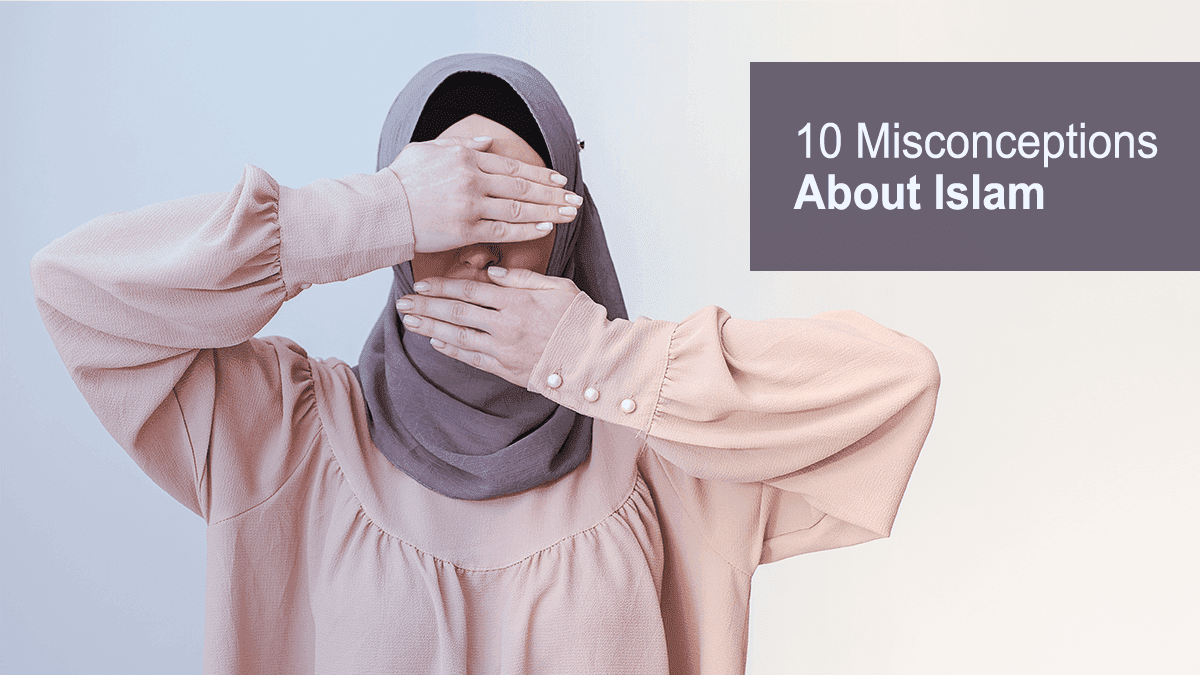These common misconceptions have often mischaracterized Islam and its billion followers. It is important to approach each religion with an open mind and seek information from credible sources. False narratives often lead to misguided beliefs, which create divisions and grievous harm to individuals and communities. By dispelling such misconceptions, we can work towards creating a more inclusive and tolerant society, working towards the shared goal of peace and coexistence.
1. Islam is a violent religion
One of the most significant misconceptions around Islam is that it is a violent religion. However, this is entirely untrue. A small number of misguided Muslims interpret the Quran for their own selfish interests, but most Muslims are peace-loving people who follow a peaceful way of life. Violence is not promoted in Islam, and it is essential to understand that individuals and their actions should not be attributed to an entire religious community.
2. Muslims do not believe in peace
Contrary to the popular belief, peace is highly valued in Islam. In fact, the word “Islam” means peace, and this is reflected in many Muslim communities’ daily practices. Muslims regularly pray for peace, and many Islamic teachings focus on the value of peace and harmony. The Quran clearly states that people should live with each other in peace, regardless of their backgrounds or religions.
3. Muslims oppress women
This is one of the most common misconceptions about Islam, and it’s entirely wrong. Islam gives equal rights to men and women, and it protects women’s dignity, safety, and honor. In a Muslim family, marriage is considered a partnership, and both spouses should treat each other with kindness, respect, and love. Women in Islamic societies also have the freedom to pursue education, careers, and social activities.
4. Muslims are terrorists
This is a harmful and false misconception that has been spread by the media and some politicians. The vast majority of Muslims are peaceful people who abhor terrorism and extremist violence. Terrorism is a criminal and anti-Islamic act prohibited in Islam.
5. Islam promotes forced conversions
Islam does not promote forced conversions. In fact, the Quran states that there should be no compulsion in religion. Muslims follow a peaceful and respectful approach when it comes to communicating their faith, and they do not coerce or force people to convert to Islam.
6. Muslims hate Jews and Christians
This is another common misconception about Islam. Muslims do not hate Jews or Christians. In fact, Islam recognizes Jews and Christians as “People of the Book,” individuals who received divine revelation before Islam. Muslims are taught to respect and honor people of all religions and backgrounds, and they are encouraged to live in peace and harmony with everyone.
7. Islam is a backward religion
Islam is not a backward religion; it is a modern and dynamic faith that embraces the best of the past and the present. Muslims have made significant contributions to many fields, including science, medicine, arts, and literature. Islamic societies have also been at the forefront of innovation and development throughout history.
8. Muslims do not believe in democracy
This is a complete myth. Muslims believe in democratic principles such as justice, equality, and fairness. The Quran supports the principles of democracy by emphasizing the importance of consultation, mutual decision-making, and consensus-seeking in all matters.
9. Muslims do not integrate into society
Muslims do integrate into society and become active participants in their communities. They work, run businesses, and contribute to the economy. Many Muslim immigrants have made significant contributions to their host countries in various fields, such as politics, education, and arts.
10. Islam is a monolithic religion
Islam is a diverse religion with various traditions, customs, and practices. Islam is practiced differently in different countries and regions. Islam is not a monolithic faith, and it is wrong to generalize all Muslims based on the beliefs or practices of one community. Each Muslim has their own interpretation of Islam, which is influenced by their cultural and societal contexts. Therefore, it is crucial to have an open-minded and nuanced understanding of Islam and its diverse adherents.
